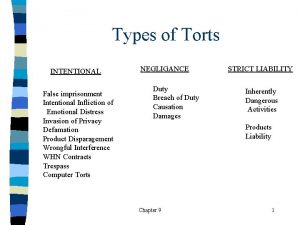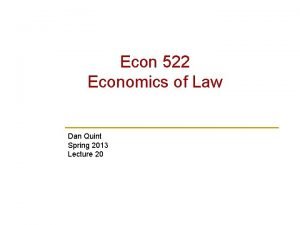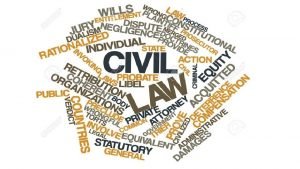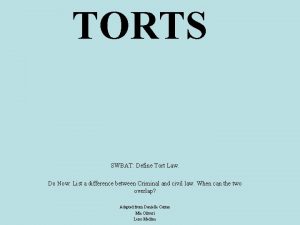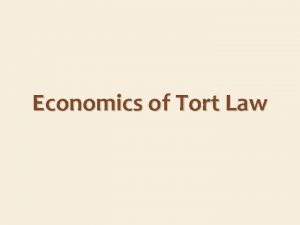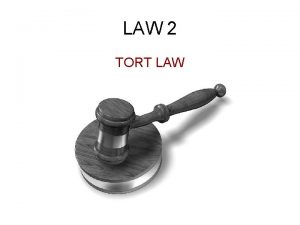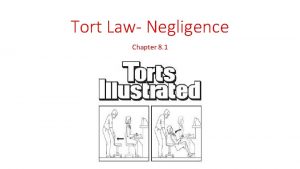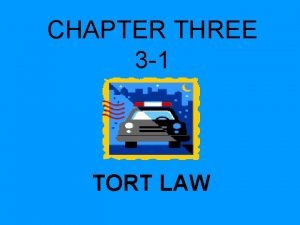TORT LAW OF TORT PRIVATE LAW MODULE 1





- Slides: 5

TORT LAW OF TORT PRIVATE LAW - MODULE 1

What is Tort �A civil wrong involving a breach of duty fixed by law, such duty being owed to persons generally and its breach being redressable primarily by an action for damages. �A body of rules which determine when the law will grant redress for damage suffered by the victim.

Three elements must be established �First, the plaintiff must establish that the defendant was under a legal duty to act in a particular fashion. �Second, the plaintiff must demonstrate that the defendant breached this duty by failing to conform his or her behavior accordingly. �Third, the plaintiff must prove that he suffered injury or loss as a direct result of the defendant's breach

Tort and Contract �Tort – duties of parties are fixed by law, Contract - they are fixed by the parties themselves. �Tort – duties can be varied or excluded by consent or agreement between the parties. Contract – duties are made by the parties. �Note the concept of remoteness of damage and mitigation of damage may apply to both tort and contract.

Tort and Crime differences �Crime – punish offenders by means of fines, imprisonment or other penalties, Tort - is to compensate victims of wrongful conduct. �Crime – prosecution are brought by the police or the Director of Public Prosecutions, Tort – actions brought by private individuals or corporate bodies. �Crime – prosecution must prove its case beyond reasonable doubt, Tort – the plaintiff needs only to establish his case on a balance of probabilities

